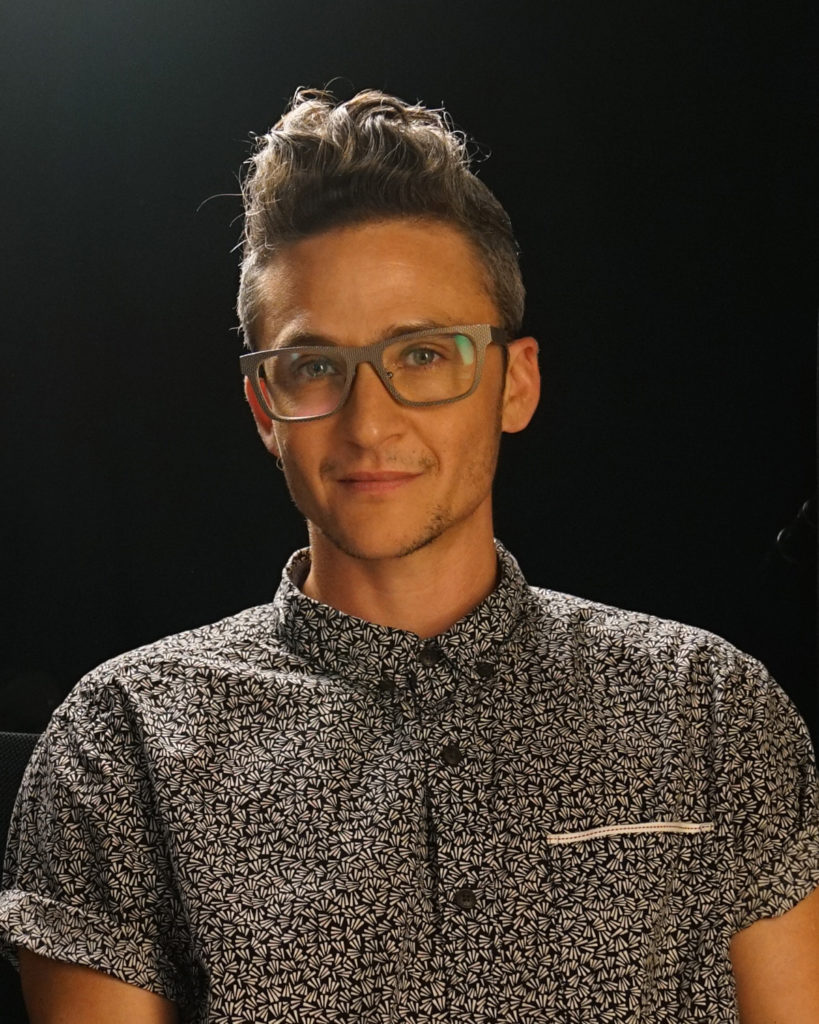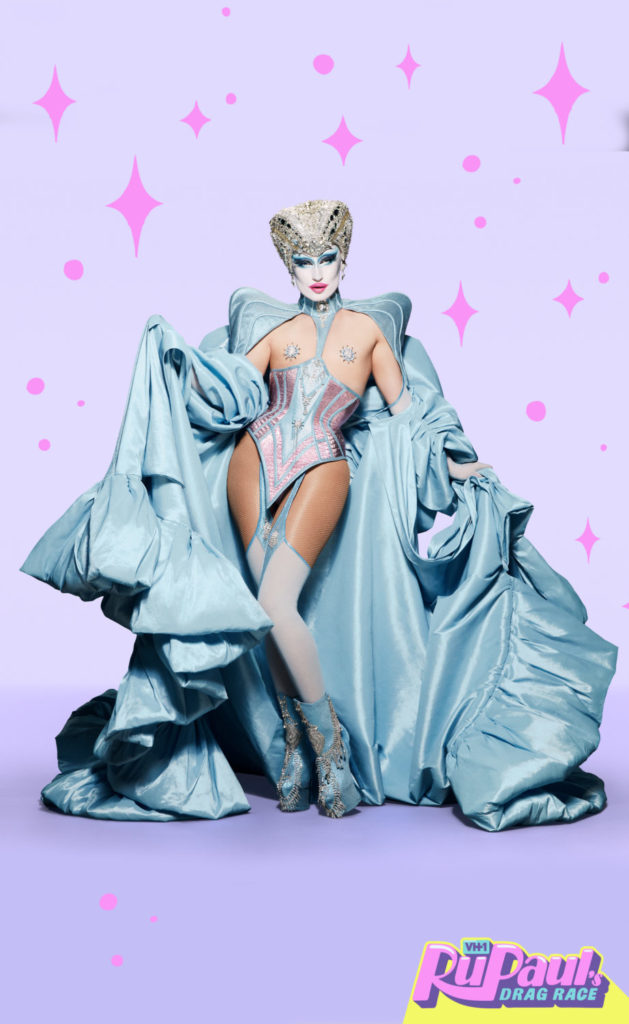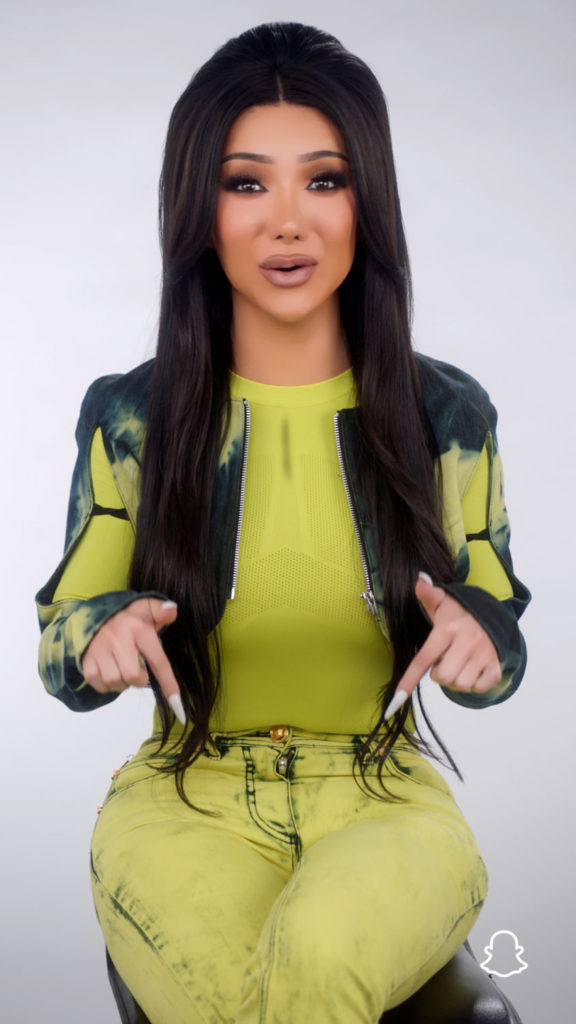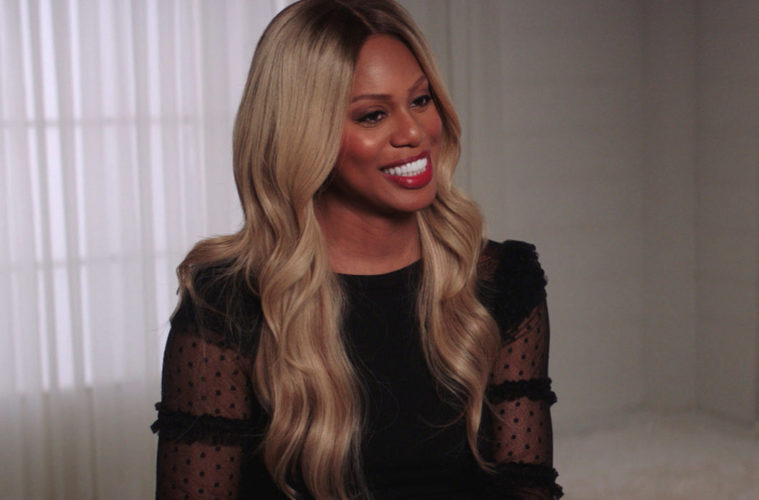Elliot Page – the actor formerly known as Ellen Page – became the first trans man to make the cover of Time magazine this month, and his image and story has been a beautiful thing to see; an unapologetic and celebratory representation of living one’s truth and sharing what that looks and feels like, both for those who might relate and for the masses. Posing in a casual black sweatshirt and jeans post-top surgery after only announcing his true gender identity a few months prior, the actor (best known for his role in 2007’s Juno and more recently Netflix’s The Umbrella Academy) looks, finally, comfortable in his own skin. And yet, his expression suggests he isn’t entirely at peace, and it’s easy to understand why.
A transgender person is someone whose sex at birth is different from who they are on the inside. As this community gains more understanding and social acceptance, closed minds continue to resist and fight against it, many using religion as justification for bigotry. Those behind this backlash seek to limit freedom and rights for those who are different, and sadly some of them actually have the power to do so.
Which makes this year’s International Transgender Day of Visibility (March 31) more pivotal than ever. Unlike marketing-based holidays, social justice celebrations like this one are necessary and powerful. Founded back in 2009 as a reaction to the queer community’s lack of representation for trans people as part of its activism, it was also meant as a more positive alternative to the Transgender Day of Remembrance (Nov. 20), which focuses on those who were murdered due to transphobia.
Post Trump especially, society finds itself torn and worn down more than ever over issues of sexuality and gender identity, on social media and in real life. But navigating the current cultural battleground should be about humanity, not hashtags. Even as public figures like Page provide much-needed examples trans people can be proud of, division and psychological damage persists for those who don’t conform to traditional gender roles.
Old school thinkers might not understand why pronouns (he/him, she/her, they/them) are important, and they may question why a recent Gallop poll stated that members of Gen-Z identify as LGBTQ+ more than previous generations, but the whys shouldn’t matter. Respecting fellow human beings should – especially friends, family and loved ones figuring things out or fighting for who they know they are. Conservatives and older folks might want to discount this wave of self-expression as a trend, or worse, something that threatens their own lifestyles. But it isn’t and it doesn’t. The truth is, more gender fluidity in the world hurts no one.
While we have positive portrayals in entertainment and media to thank for the progressive shift in perspectives these days, we also have the stereotypes and negative reactions to trans people on film and TV from the past to blame for biases, both conscious and subconscious.
Last year, the Netflix documentary Disclosure sought to expose the most significant trans representations in pop culture and how they manifested into the divergent outlooks of today. It is the most enlightening piece of work about the topic available to watch on mainstream media right now, featuring a variety of male and female transgender voices – from filmmakers to actors to scholars – speaking about how TV and film affected them.

Sam Feder (Netflix)
From Silence of the Lambs (1991) to The Crying Game (1992) to Ace Ventura Pet Detective (1994), Disclosure explores how classic movies painted trans characters as manipulative or menacing and portrayed cis (people whose gender identity corresponds to their sex at birth) character’s reactions to them with revulsion – two recurrent themes that ultimately became harmful tropes.
Disclosure’s writer/director Sam Feder (who is a trans man) tells L.A. Weekly that The Crying Game, in particular, made a big impression on him. “I was 15… it was an incredibly beautiful and complicated movie, but there’s that one scene where she undresses in front of her boyfriend for the first time and he strikes her across the face, then runs to the toilet to vomit in disgust,” he shares. “I certainly didn’t have the language or understanding of my gender at the time but I did not want to be associated with someone whose body evoked vomiting.”
Around this time, Feder started telling stories through images. “I was making photo essays and I became really politicized,” he says. “I started making photo essays and understanding how deeply dominant media stigmatized people depending on their race, class, gender, sexuality, etc.”
After exploring these issues for most of his career, Feder’s deep dive into the trans experience took three years of research and focused documentation. While the project documents films for their problematic parts, it also spotlights positive portrayals. Some stuff is looked at through both positive and negative lenses at the same time. “There’s a desire to show how we can hold two truths at once, that we can be critical of something, and love it at the same time, we can tell someone they’re wrong, and do it with accountability and love,” Feder explains. “There’s always someone who’s in the film that’s also going to talk about how much they love that movie… whether it’s Boys Don’t Cry or Paris is Burning.
Laverne Cox, who served as a producer on the doc, was a longtime inspiration for Feder and many involved with the film. In 2013, her role as Sophia Burset on Orange Is the New Black led to an Emmy nomination (making her the first openly trans person to get one) and a year later, her own Time magazine cover standing proudly over the headline “The Transgender Tipping Point.”
As a trans woman of color, Cox represented two marginalized groups with nuance and power, both in her popular TV role and in her own life. Gorgeous, smart and self-assured, Cox was able to articulate her experience in a way anyone could understand. She stood – and still stands – as a influential symbol and sometimes, inadvertent educator. As the doc shows, her interaction with a clueless Katie Couric -who seemed to care more about the medical components of transitioning, than her guest’s feelings during a now-infamous talk show segment- made for a teachable TV moment that still resonates.
Explaining that the host’s intrusive questions about genitalia and transition objectified her trans guests, Cox said: “The reality of trans people’s lives is that so often, we are targets of violence. We experience discrimination disproportionately to the rest of the community. Our unemployment rate is twice the national average; if you are a trans person of color, that rate is four times the national average. The homicide rate is highest among trans women. If we focus on transition, we don’t actually get to talk about those things.”
While Disclosure doesn’t judge Couric for her misstep, it does provide guidance for cis viewers about what is and isn’t appropriate to ask about. It’s not afraid to call out creators on past mistakes, either. Ryan Murphy made them with shows like Nip/Tuck for example, but he also deserves praise for his progression as an LGBTQ producer, especially with FX’s Pose. Casting all trans characters with trans actors and telling trans stories in a real and compassionate way, the show has been ground-breaking. Pose just announced its third and final season last week, and as Murphy said to mark the occasion, “The show made history behind and in front of the camera, and its legacy runs deep.”

POSE (Sarah Shatz/FX)
“We got to tell the exact story we wanted, as we wanted to tell it, and I’m incredibly honored and grateful,” he added in new press materials about season 3, debuting this May. “Pose’s story may end in 1996, but its impact will go on forever.”
As we reconsider content from the past, and look forward to what Murphy and his ground-breaking new shows have in store, there is encouragingly, plenty of entertainment to search out right now in terms of representation.
Euphoria, the hit HBO drama about the sex and drug-fueled lives of today’s teenagers features a beguiling trans girl named Jules (played by trans actress Hunter Schafer). She’s the love interest of Rue, the show’s narrator played by Emmy-winning superstar Zendaya. The first season ended with the pair’s relationship appearing to end, but fans are holding out hope for the duo, especially after two special episodes from each character’s point of view that ran at the end of last year. Whatever happens, the show has illustrated how gender identity, gender expression and sexual orientation are not mutually exclusive, even if societal pressures sometimes make figuring that out confusing for young people. When it comes to love and sexual identity, nothing is clear cut and it shouldn’t have to be on film, or in real life.

Gott Mik (VH1)
The current season of RuPaul’s Drag Race has brought these kinds of these issues to the forefront as well. The current season has its first openly trans male contestant and as of this writing, he’s a top contender for the crown this year. Gott Mik, aka L.A. makeup artist Kade Gottlieb, does amazingly theatrical and androgynous drag complete with glam-rock clown makeup and alluring high-fashion get-ups, making him a fan favorite.
The question of what “drag” actually is comes into play here, as Mik dresses up in feminine, albeit freaky, looks. Does he have an advantage because of how he was born or is “drag” less about conveying a certain gender and more about style, imagination and execution of a thematic and fabulous look? This season, Mik is proving the latter is true.
Like Murphy, RuPaul stirred up some controversy a few years ago when this conversation first started, though. He had previously implied that trans women should be excluded from the competition. Though plenty of contestants went on to transition after their time on the show, no openly trans women have been featured or promoted this way… yet. It seems sure to happen soon enough, as Ru has seemingly changed his mind and is “moving with what the kids are doing,” as he said on a recent episode of The Steven Colbert Show, while touting the show’s new season.
“Every time I open my DMs on social media, I can’t even fathom how many messages I have that are thanking me for being the person that I wish I had growing up which blows my mind,” Gott Mik shares with L.A. Weekly about his current visibility. “I wanted to come onto RuPaul’s Drag Race and be a trans masculine artist that didn’t care about gender norms or what society wanted me to be. Seeing the reactions from everyone watching has shown me that I am doing that by just being me.”
Win or lose, Mik has strong feelings about why he is where he is, sharing, “I want the takeaway from me being on the show to be that no matter what box society puts you in, no matter what the patriarchy tells you you are, you’re powerful, you’re worthy of greatness and no one can tell you otherwise.”
The excellent new short called Juliet seeks to capture trans greatness while also conveying the pain of not fitting in. As Ira Storozhenko, the L.A.-based director, tells us, she was so touched by actress Jasmine Mosebar after meeting her during her first year at the AFI Conservatory that she decided to share her experience as a student trying out for a coveted theater role during her transition on film.
“I wanted to create the emotional conversation with the audience and share how important yet complicated it is to make the first step when you are a teenager and finding your own voice,” says Storozhenko.
Storozhenko says of Disclosure, “I cried so many times when watching, being overwhelmed by the cruelness of the world. I can’t even tell you how I admire everyone who participated. I only wish that there will be one day when there will be no gender separation, and we will stop pointing at actors saying ‘transgender’ actors the same way we never say ‘cisgender’ actors.”
Normalizing differences might help lay the foundation for acceptance, but loving examples might be even more meaningful. As is discussed in Disclosure, even the widely panned I am Cait (chronicling Bruce Jenner’s transition into Caitlyn) offered encouraging scenes via support group sessions with caring families of trans youth accepting and even celebrating their kids for their uniqueness. Obviously, when these families happen to be famous or have a following, they can be even more influential on the public mindset.
From Charlize Theron to Dwayne Wade to Cher, more and more celebrities have proudly and publicly come out in support of their trans kids, setting an example that not only inspires families to let their hearts lead the way, but might save lives too.
Constantine Venetopoulos’ doc called Draw with Me, featuring Jennifer Lopez and President Joe Biden, is no exception. Lopez introduces the short film made in coordination with The Trevor Project, about young artist Brendon Scholl, her “nibling” (a gender-neutral term for niece or nephew). Scholl is her sister Leslie Ann Lopez’s child.
“I hope the film acts as a sort of introduction to people who don’t have any previous experience with trans people or as a comfort for other trans kids,” Scholl shares with L.A. Weekly. “I think that trans visibility has definitely improved in recent years because there are more stories that feature trans people. But there’s a lot of trans experiences that still aren’t being told. It’s largely white trans stories being told which is just a small part of the community. When we start to see media featuring trans people in all our shapes, sizes and colors, then I’ll say we’re getting somewhere.”
As a half Asian and half Latina beauty mogul and influencer with millions of followers on social media, Nikita Dragun takes her platform as a trans role model to heart. Dragun, whose new Snapchat show Nikita Unfiltered, offers a Kardashians-like look at her life, took the opportunity to share her reality with us, as she does her fans. With the second season of her show (which just premiered last week), she also shares her experience looking for love since she transitioned.

Nikita Dragun (Snapchat)
“As a biracial person as well as a trans person, I think having a forum and not using it to talk about something so important would be so disheartening,” Dragun shares. “I feel reinvigorated after seeing so many amazing movements, like Black Lives Matter. And I feel like a lot more social issues need to be addressed in general. I’ve fought through stereotypes and I love proving people wrong. I think I live my life authentically and that’s what’s so amazing about where I am now.”
Indeed, Scholl, Gottlieb and Dragun represent a new group of Gen Z public figures who not only refuse to hide in the shadows but who are putting themselves out there and finding success by celebrating who they are. “I represent a little boy who came to L.A. that grew up and conquered and became this powerful woman,” Dragun says. “And I think we’re kind of all in a transition as people, we’re all trying to become our best selves and our true selves, and I think that is represented in my journey and in my story.”
So how is all this visibility changing things and why does it continue to be necessary? Well, suicidal thoughts and attempts among transgender people are significantly higher than that of the general population in America, according to a 2019 UCLA survey. Then there’s the U.S. Trans Survey, which concluded that transgender people of color are more likely to experience unemployment, harassment by police and refusals of medical care. More recently, the Human Rights Campaign (HRC) Foundation stated that 2020 marked the deadliest year on record in terms of violence against transgender and gender non-conforming people. Add to all this, the recent onslaught of dehumanizing laws that right-wing policymakers continue to push across the country (most focused on barring trans kids from playing sports under their gender identity or restricting young trans peoples’ access to gender-affirming health services), and it’s easy to see why everyone mentioned in this story is so vital as public figures, both for those struggling with identity and for those seeking to understand something they may not be exposed to in their day to day lives.
“There’s a line towards the end of Disclosure,” Feder shares as our interview winds down. “Yance Ford is quoting Marian Wright Edelman, and he says, ‘children cannot be what they cannot see…’ but it’s not just about children,” Feder insists. “It’s about all of us – we can’t be a better society until we see a better society. And I cannot be in the world until I say I am in the world.”
Watch Disclosure on Netflix; RuPaul’s Drag Race S13 on VH1; Draw With Me on ArenaScreen; Pose on FX on Hulu and Netflix; and Nikita UnFiltered on Snapchat.
For more resources and education visit TheTrevorProject.org, HRC.org, and GLAAD.org
Advertising disclosure: We may receive compensation for some of the links in our stories. Thank you for supporting LA Weekly and our advertisers.

